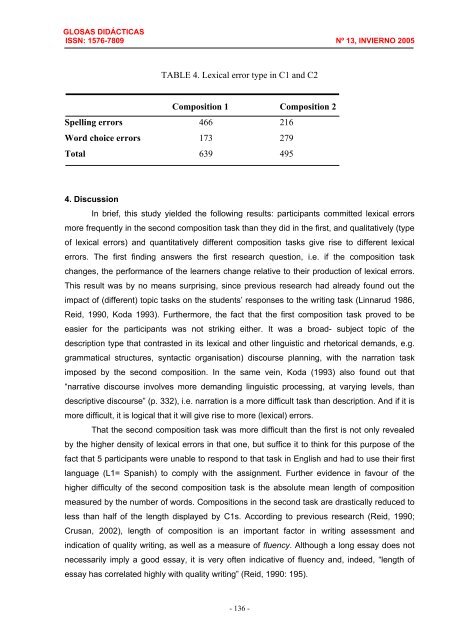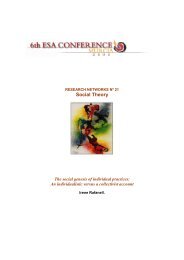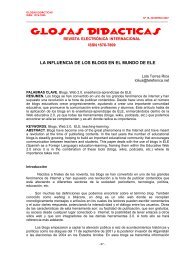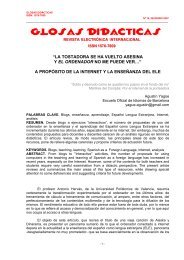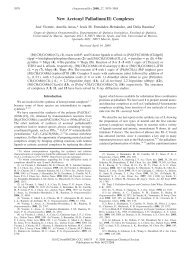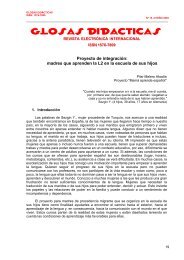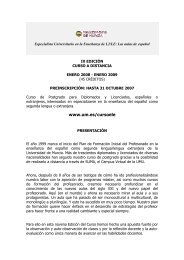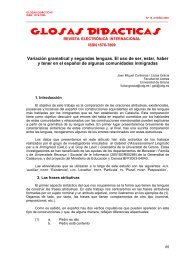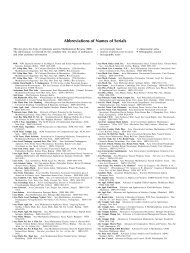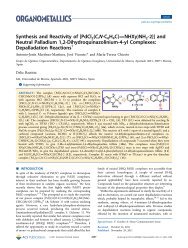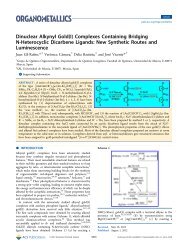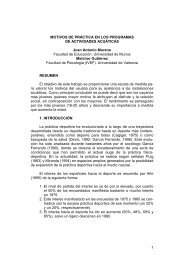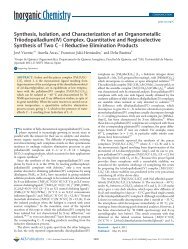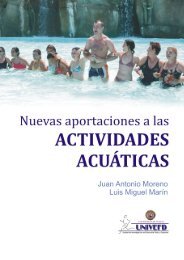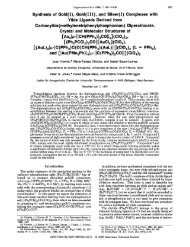descarga del número 13 de glosas didácticas completo
descarga del número 13 de glosas didácticas completo
descarga del número 13 de glosas didácticas completo
Create successful ePaper yourself
Turn your PDF publications into a flip-book with our unique Google optimized e-Paper software.
GLOSAS DIDÁCTICAS<br />
ISSN: 1576-7809 Nº <strong>13</strong>, INVIERNO 2005<br />
TABLE 4. Lexical error type in C1 and C2<br />
Composition 1 Composition 2<br />
Spelling errors 466 216<br />
Word choice errors 173 279<br />
Total 639 495<br />
4. Discussion<br />
In brief, this study yiel<strong>de</strong>d the following results: participants committed lexical errors<br />
more frequently in the second composition task than they did in the first, and qualitatively (type<br />
of lexical errors) and quantitatively different composition tasks give rise to different lexical<br />
errors. The first finding answers the first research question, i.e. if the composition task<br />
changes, the performance of the learners change relative to their production of lexical errors.<br />
This result was by no means surprising, since previous research had already found out the<br />
impact of (different) topic tasks on the stu<strong>de</strong>nts’ responses to the writing task (Linnarud 1986,<br />
Reid, 1990, Koda 1993). Furthermore, the fact that the first composition task proved to be<br />
easier for the participants was not striking either. It was a broad- subject topic of the<br />
<strong>de</strong>scription type that contrasted in its lexical and other linguistic and rhetorical <strong>de</strong>mands, e.g.<br />
grammatical structures, syntactic organisation) discourse planning, with the narration task<br />
imposed by the second composition. In the same vein, Koda (1993) also found out that<br />
“narrative discourse involves more <strong>de</strong>manding linguistic processing, at varying levels, than<br />
<strong>de</strong>scriptive discourse” (p. 332), i.e. narration is a more difficult task than <strong>de</strong>scription. And if it is<br />
more difficult, it is logical that it will give rise to more (lexical) errors.<br />
That the second composition task was more difficult than the first is not only revealed<br />
by the higher <strong>de</strong>nsity of lexical errors in that one, but suffice it to think for this purpose of the<br />
fact that 5 participants were unable to respond to that task in English and had to use their first<br />
language (L1= Spanish) to comply with the assignment. Further evi<strong>de</strong>nce in favour of the<br />
higher difficulty of the second composition task is the absolute mean length of composition<br />
measured by the number of words. Compositions in the second task are drastically reduced to<br />
less than half of the length displayed by C1s. According to previous research (Reid, 1990;<br />
Crusan, 2002), length of composition is an important factor in writing assessment and<br />
indication of quality writing, as well as a measure of fluency. Although a long essay does not<br />
necessarily imply a good essay, it is very often indicative of fluency and, in<strong>de</strong>ed, “length of<br />
essay has correlated highly with quality writing” (Reid, 1990: 195).<br />
- <strong>13</strong>6 -


